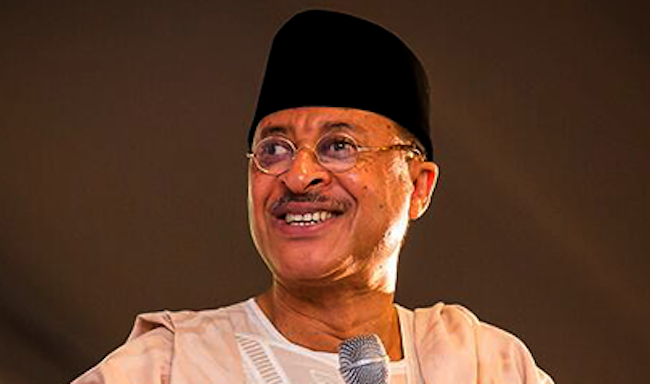Politics
Utomi inaugurates shadow govt to challenge Tinubu administration

Prominent political economist and activist, Professor Pat Utomi, has formally inaugurated a shadow cabinet composed of professionals and political figures from various opposition parties.
Branded the “Big Tent Coalition Shadow Government,” the initiative is said to aim at providing a credible, policy-driven alternative to President Bola Tinubu’s administration.
The launch, which took place virtually on Monday evening, marks a bold step by Utomi and his coalition in what they describe as a “national emergency,” driven by worsening economic conditions, rising insecurity, and declining public trust in governance.
“This shadow cabinet is not about mere criticism,” Utomi said in his address. “It is a response to the desperate cries of a people burdened by policies that have driven them toward penury. It is time we offered hope through action.”
Utomi, a former presidential candidate and renowned scholar, explained that the shadow government would function as an intellectual and moral counterforce to the current government. It will hold weekly meetings, monitor national policies, and propose practical solutions across key sectors such as the economy, security, education, and health.
Read Also: ‘Presidency may not be your destiny’, Atiku’s former aide, Bwala, tells ex-VP
Among the notable appointees are:
*Human rights lawyer Dele Farotimi, who will head the Ombudsman and Good Governance portfolio.
*Dr. Otive Igbuzor
*Halima Ahmed
*Cheta Nwanze
*Dr. Peter Agadah
*And several others drawn from a broad range of disciplines and regions.
Utomi defended the shadow government, citing mounting hardship across the country. He pointed to mass layoffs, the exodus of multinational companies, and widespread insecurity as evidence of leadership failure.
“There are places in Benue and Plateau states where people have abandoned their homes due to unchecked terrorism,” he said. “This is no time for silence. If a genuine opposition does not speak, propose alternatives, and awaken our collective conscience, it becomes complicit in the nation’s decline.”
He also decried what he said was the government’s increasing reliance on propaganda, warning that such tactics echo authoritarian regimes of the past.
“The saturation of propaganda is preventing honest critique,” he noted. “Like Goebbels did for Hitler, those in power today appear more invested in suppressing truth than embracing reform.”
Utomi strongly criticised the removal of fuel subsidies, describing it as a poorly executed policy that worsened economic inequality.
“It’s not about whether the subsidy should go, but how it went,” he said. “Policies need sequencing and structure. What we got instead was shock therapy, without cushioning for the vulnerable.”
He argued that the path to economic recovery lies in local production, entrepreneurship, and community-based policy implementation.
“Millions are unemployed, and yet the elite continue to fly jets and sail yachts with public funds,” he said. “Pain must be shared to gain consensus. Right now, it is uneven and unjust.”
Calling for decentralised policing, Utomi proposed a tiered security system involving community-based forces, state police, and a federal guard.
“Policing should be local. The centralised system only serves corrupt interests. It is failing our people,” he said.
He also took a swipe at the political class, accusing them of prioritising electoral strategies over governance.
“Too much of what we see is positioning for 2027. Meanwhile, the people suffer in silence. This shadow team must focus on restoring governance for the sake of the people,” he said.
Utomi concluded by urging his team to embody transparency, ethics, and innovation.
“Even if the government steals your ideas and uses them, let them. The goal is to help Nigeria,” he said.
He tasked members with studying and exposing issues such as the controversial Lagos-Calabar highway contract and other instances of alleged state capture.
Join the conversation
Support Ripples Nigeria, hold up solutions journalism
Balanced, fearless journalism driven by data comes at huge financial costs.
As a media platform, we hold leadership accountable and will not trade the right to press freedom and free speech for a piece of cake.
If you like what we do, and are ready to uphold solutions journalism, kindly donate to the Ripples Nigeria cause.
Your support would help to ensure that citizens and institutions continue to have free access to credible and reliable information for societal development.






















